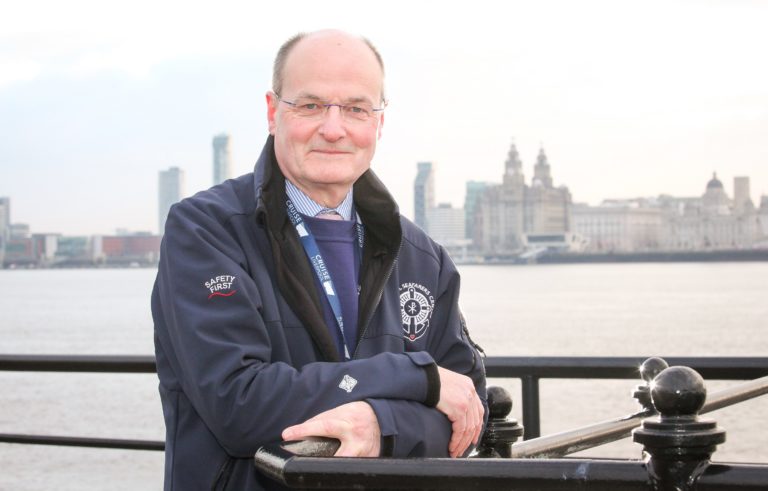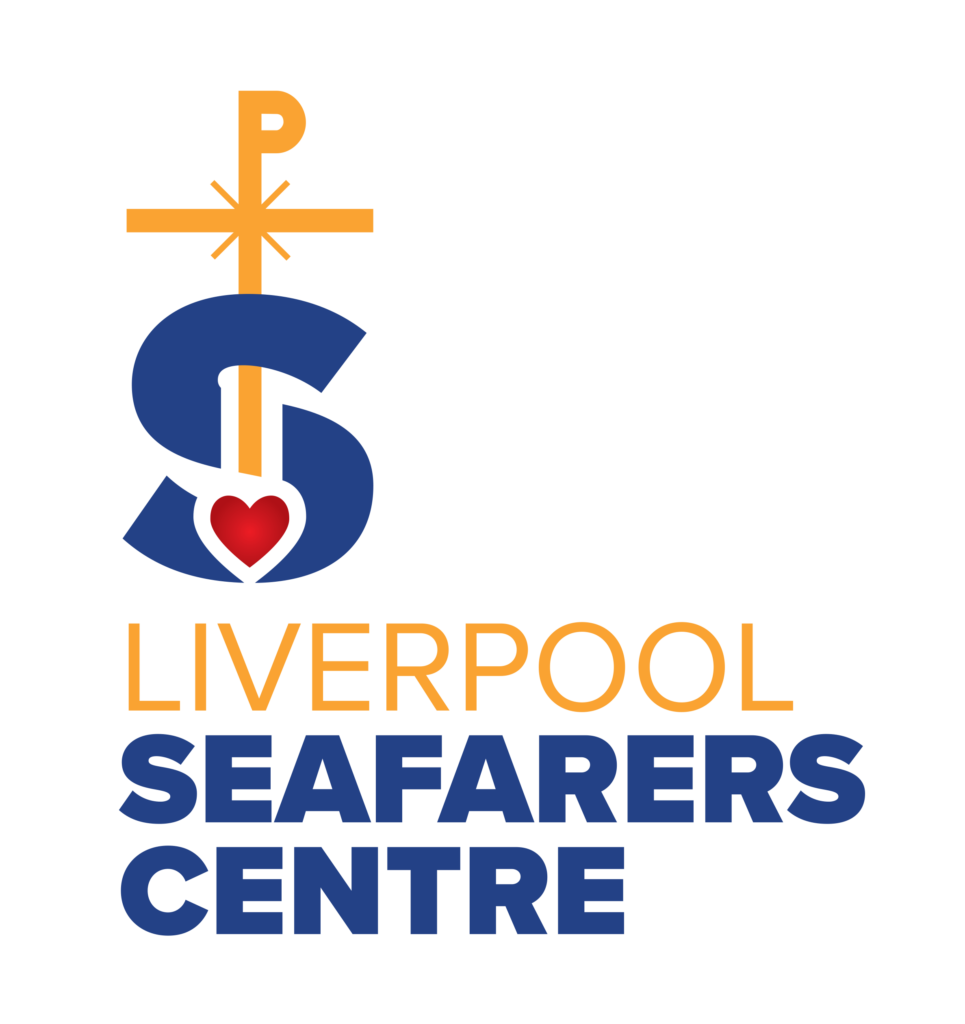

Ecumenical charity Liverpool Seafarers Centre has welcomed the publication of a report that highlights the risks to those away from home for long periods and urges those working at sea to seek help for their mental health.
Researchers at Cardiff University’s Seafarers’ International Research Centre (SIRC) found that long working hours, isolation and extended periods away from home put seafarers at risk of poor mental health.
The study, led by Dr Helen Sampson and Neil Ellis, found that more seafarers were reporting the development of anxiety and depression, whilst those in some ranks and roles at sea were particularly prone to the effects of chronic stress, or ‘burnout’.
The working environment and conditions on board for some are resulting in a recognised increase in suicides and attempted suicides. Loneliness, boredom and depression remain highlighted by the crew as significant issues. Sometimes, low mood can be a side effect of modern technology – it can be upsetting for a seafarer to hear about difficult news from home via social media or direct communications, when there is little practically that they can do about it.
The Crosby-based charity, recently voted by seafarers as the world’s best seafarers’ centre, sees thousands of seafarers every year, many of whom need extra emotional support due to the length of contracts and missing family and friends, together with the nature of the work they do.
Chief executive John Wilson said only rarely do seafarers ask for emotional help because they fear that to do so may be detrimental to their continued and future employment. Yet, with the majority of seafarers spending anywhere between nine and twelve months on a ship, loneliness, low mood, and boredom might be seen as quite reasonable reactions to quite a challenging situation. For some, mental health problems can develop, and anxiety and depression seem to be becoming more evident.
He said: “If a seafarer has had a bad day at the office, they cannot go home and forget about it like we can, as they are within the environment all the time. Even if they have down-time in their private accommodation, there is still noise and vibration, and their cabin may not necessarily be the most comfortable environment in which to relax. There is no escape. Then there is the issue of getting off the ship for that all-important shore leave. Just because a ship is in port it does not mean the crew can avail of shore leave. They might get a two to four-hour window to get off the vessel but with no regularity.”
The SIRC study, which polled 1,500 seafarers, highlights the growth in initiatives by maritime welfare charities and other stakeholders to encourage seafarers themselves to look after their emotional wellbeing. However, it also indicates the need for shipping companies to better grasp opportunities to protect crew mental health, by providing greater support for seafarers, and so work to prevent conditions such as anxiety and depression.
One of the ways the centre helps is in providing social visits to ships docked in Liverpool, going aboard to chat to the crew, to offer a warm welcome, new human connections and to break the monotony of their time on board. Liverpool Seafarers Centre also provides internet-enabled sim cards to give seafarers the opportunity to connect with those home at a time to suit, allowing for world time zones, independent of the vessel’s own internet.
The SIRC report said that welfare charities offer seafarers ways of supporting their own wellbeing, but are less likely to offer companies proactive ways of improving life for their crew. Not so at the Liverpool Seafarers Centre. Mr Wilson said: “We listen to what’s being said but it’s equally, if not more important, to listen to what’s not being said. If we find out someone hasn’t been getting adequate rest periods or shore leave, then we can speak to the company or authorities on their behalf. Ships are usually happy places but if one senses it’s an unhappy place, then we try to find out what has happened.”
A crew member of one ship recently docked in Liverpool had died in a previous port, leaving the remaining workforce traumatised and needing extra support. Another had a crew compliment of 21 made up of eight different nationalities. Mr Wilson said: “There’s no common denominator in this scenario – one does not talk sport or politics, and that can leave one terribly lonely and isolated. There’s also added stress on the cook on board who has to cater to all the different requirements. We made this ship a priority and made sure we visited the crew more than once while they were in Liverpool.”
Seafarers can use the centre’s facilities while ashore, allowing them space to unwind, while staff can also arrange transport to the city or countryside – wherever they wish to visit – to bring a sense of respite.
Mr Wilson said: “For some, it’s just a chance to go outside and stand on the grass or tarmac, because they can’t do that on a ship. Others can spend two hours in a supermarket, amazed by the volume of goods or just enjoying seeing families interacting with each other.”
The seafarers centre has engaged with clinical psychologist Dr Rachel Glynn-Williams to help them better deal with crews who need more emotional support. Dr Glynn-Williams said: “Working onboard a ship can be personally very fulfilling, but it can often come with a personal challenge, too. For any one of us, our emotional wellbeing is improved by having connections with others. So, here at the Liverpool Seafarers’ Centre, a warm welcome is key to what we offer all visitors arriving at the Port and the centre.
“Some seafarers will have encountered stressful incidents onboard, whilst others will be feeling the strain of monotonous or pressurised workloads. As well as the practical support we provide, the team at the centre are able to offer a breathing space, listening confidentially to concerns, helping seafarers learn about ordinary responses to stress and encouraging helpful ways of managing it.”
Tides are changing with the shipping companies, too. Mr Wilson cited two independent cruise line companies who have begun to offer seven-month contracts and bringing all crew and officers into one mess rather than segregating them into different areas. In addition, crew on board are encouraged to engage with passengers. This is a new and welcome development for all.
“This is really good because everybody is being treated as one,” Mr Wilson said. “They’re also encouraging the crew to engage with the passengers, which didn’t happen before. These are all steps in the right direction and should go towards alleviating some of the issues raised in the report.”
The maritime sector has recognised that mental health is of concern and is beginning to address some of the underlying triggers to alleviate this issue amongst crew on board vessels to include fishing trawlers, merchant vessels and cruise ships.
Liverpool Seafarers Centre’s dedicated team of staff members and volunteers visit vessels on a daily basis and integrate with the crew to offer a listening ear to those who wish to talk and need to vent their frustration or anxiety within a pastoral sense. A total trust exists between the mission (Liverpool Seafarers Centre in this case) and seafarers, as they know that personally the individual can offload and openly talk about any issue of concern or merely engage in conversation on any topic with a fellow human being. In response, enabling a seafarer to smile, momentarily releases the mental pressure which the seafarer may be experiencing.
The Liverpool Seafarers Centre welcomes this very important report as an opportunity to highlight the needs of those who work endlessly to ensure that the UK economy, and ultimately the end user, enjoy an endless supply of goods and services.
Mr Wilson reminds us that 95% of the UK’s goods arrive to our island nation by sea, and that without seafaring and seafarers, the country would grind to a halt within three weeks. He said: “Pause for a moment and reflect upon where all of our goods originate and spare a thought for today’s seafarer. It is Liverpool Seafarers Centre, and other kindred societies around the world, who say a big thank you to all seafarers on your behalf for what they do for us, thus ensuring that life continues without interruption.”
Liverpool Seafarers Centre is reliant on donations to enable it to continue its valuable work. For more information or to donate online visit www.liverpoolseafarerscentre.org
